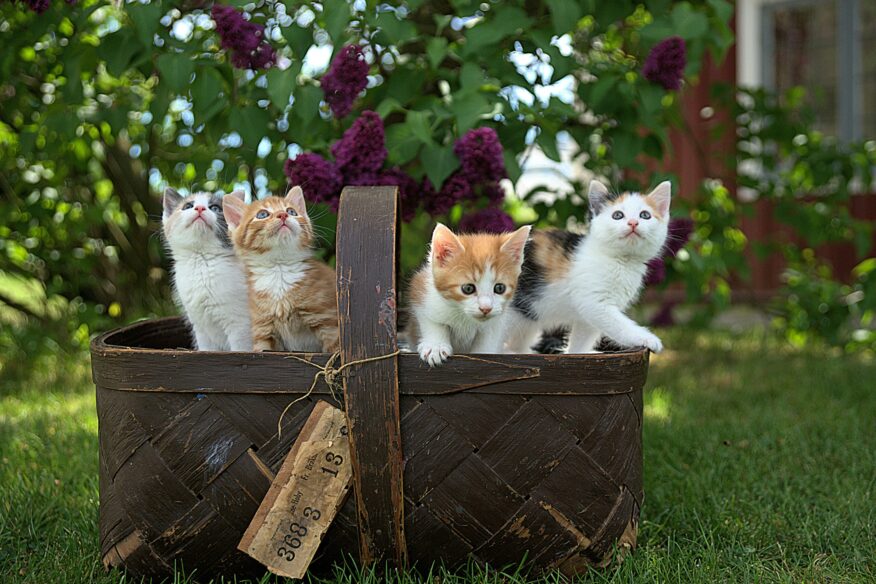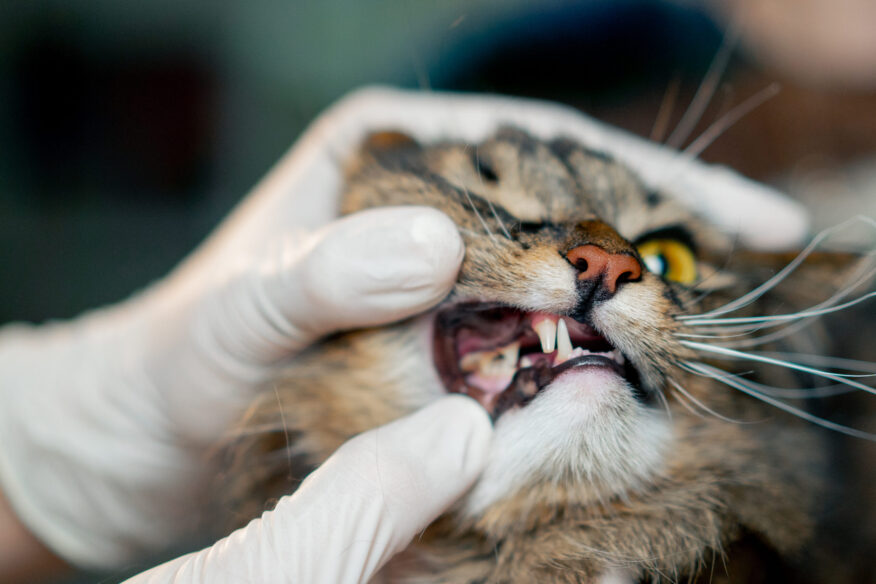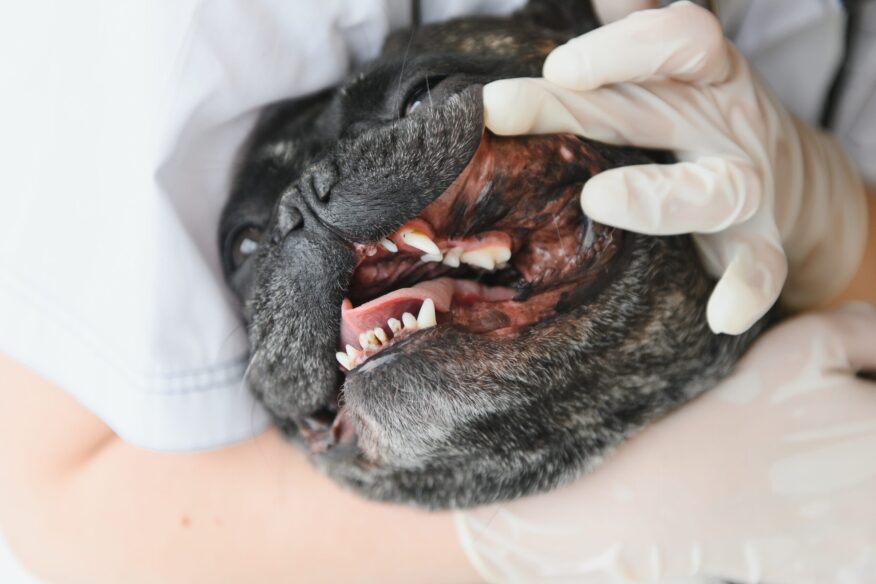Start to improve their life expectancy right now with 5 simple secrets!
We will also tell you the 3 simple mistakes to avoid that can shorten their life span or decrease their quality of life
Here at Summer Hill Village Vet we want to give you all the advice and support you need to care for your pet at all of their life stages.
Doctors Lydia Brichta and Sandra Hodgins and their team have decades of Veterinary experience between them. They all attend continuing education conferences annually as well as evening lectures and on-line webinars practically every month. Take advantage of this combination of personal experience and the latest information by reading this special report.
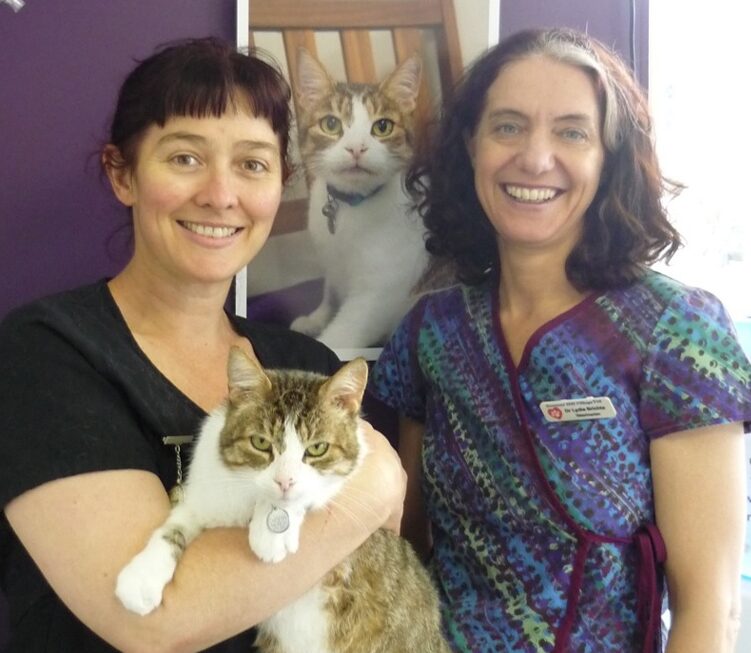
Read on to find out the full details of the five simple secrets to keeping your pet healthy and happy well into old age.
This report is for everyone who’s cat is over 7 years old and who wants them happy and healthy for as long as possible. We want to help you improve the quality of life for your pet, detect disease earlier and reduce your long-term care costs.
We understand the complex processes that affect pets as they age and here at Summer Hill Village Vet we guarantee to tailor our advice according to your cat’s individual needs and life stage.
The five secrets
- Catch problems early – get regular check ups
- Create the right environment – looking after their aging bodies
- Feed the right food – giving them what they need
- Preventative Health Care – parasite control, blood tests and vaccinations
- Don’t miss the warning signs of major health risks
Secret 1. Catch problems early – get regular check ups
Early recognition of disease allows us to start treatment promptly and so maintain their quality of life for as long as possible. It’s as true for cats as it is for people that early treatment is the most effective.
The major problems we look for in old cats are: kidney disease, hyperthyroidism, diabetes, cancer, arthritis, dental disease, hypertension and cardiac disease. Just about all of these can be picked up early but if missed will have a significant impact on your pet’s health and the number of happy years you can have together.
When you bring your cat for their health checks then we can examine them, looking for the usual “old cat” problems as well as weighing them and discussing any quality of life issues. You have the opportunity to ask us about anything that is worrying you. Changes in body weight, for instance, can be very significant especially if other factors (such as level of exercise and diet) remain the same.
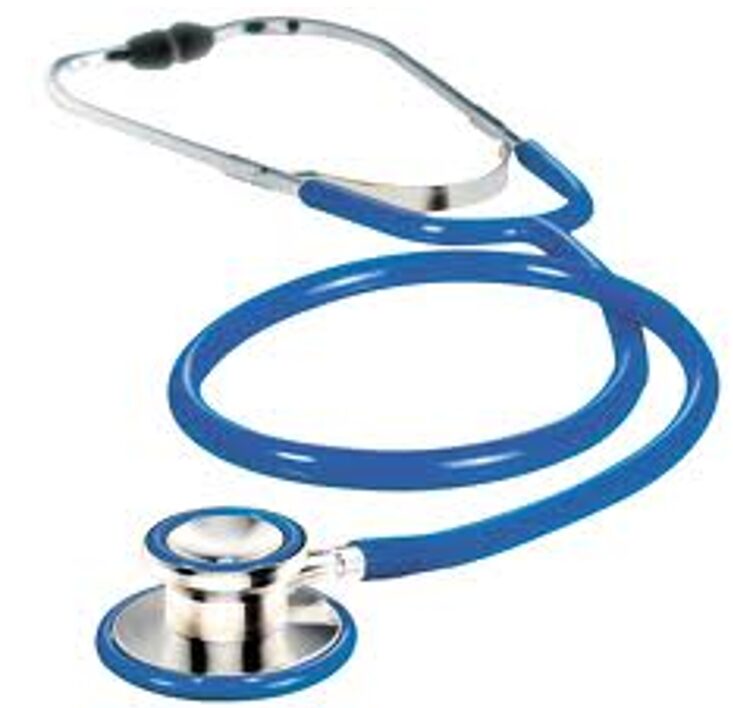
We have different recommendations for their different life stages.
At 7 years old your cat is mature – just like a 40 year old human and that’s usually when our doctor starts recommending blood tests and a more thorough examination for us.
By the time your pet is 10 that is roughly equivalent to 60 human years – they are seniors too! Once they are seniors a blood test is usually recommended annually and twice yearly check ups.
At 15 years old they are now about 80 human years and are officially geriatrics and can definitely benefit from more in depth twice yearly check ups.
We recommend bringing a urine sample along with your pet when they come for their check up once they are over seven (or we can often collect one whilst they’re here).
A simple test on a urine sample can give a lot of information and rule out many potential problems. If we find an abnormal result we will investigate further perhaps taking blood. Identifying disease processes early means we then can treat them or formulate a plan for the future to slow them down. For instance if there is a problem with the kidneys, then we may need to do culture and sensitivity of the urine regularly because once the kidneys are damaged an infection causes more damage and that animal can’t afford to lose any more function.
Regular blood pressure checks for old cats can also identify hypertension. Investigation may reveal an underlying cause such as Hyperthyroidism and treatment can prevent secondary damage of kidneys and blindness.
Secret 2. Create the right environment – looking after their aging bodies
As they get older they are less active and their muscles get weaker & their joints stiffer so they can’t jump as well as they used to. Often they loose their sense of smell & along with teeth problems this can really reduce their appetite.
They may loose some of their hearing & sight & so have trouble coping with change such as new furniture or dangers such as cars.
Their bowel function can decline and their absorption of nutrients decrease causing weight loss and a tendency to diarrhoea or constipation.
They often need more water because of kidney problems but they are less likely to walk to find their water bowl so they have a tendency to dehydration which makes their kidney problems & constipation worse.
Their immune system may become less efficient making them more prone to infection.
TIP: How to tell if they are a good body weight.
Run your hands over their back & over the ribs. Can you count the ribs, can you feel the spine & hip bones? If there is no layer of tissue under the skin but over the ribs or if the bony tips of the spine & hips stick out then your pet is too thin. If you can’t feel the individual ribs and your pet has no waist & you can’t feel the spine then your pet is too fat!
You can make their environment more suitable to their changing needs:
- Make a step up to the sofa
- Offer a warm, comfortable bed in a draught free area
- Bean bags & hammocks are very comfortable
- Electric heated pads for a warm bed in winter
- Make sure they can hide away from noisy, active dogs & children
- Keep their water bowl close to their bed
- Don’t move furniture around
- Keep them in more, especially at night
- Make sure the litter tray is low-sided with a soft litter
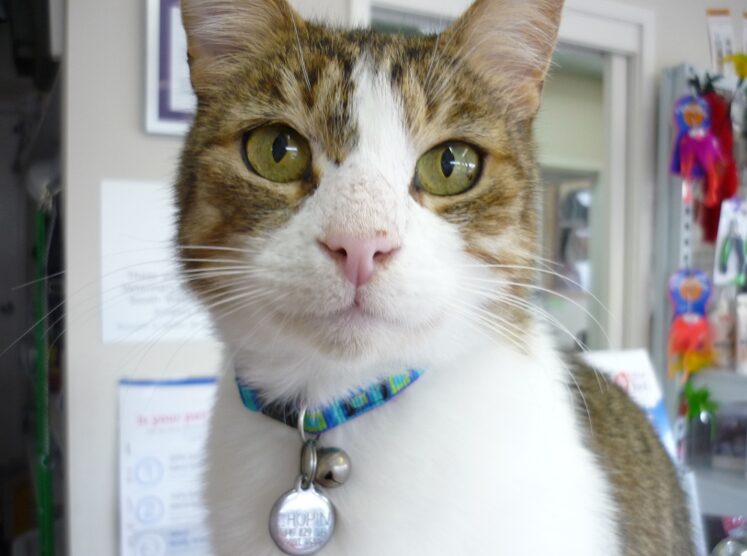
Because they get stiff and sometimes forgetful you will need to groom them more. Because they no longer scratch at trees & posts their nails can become very long, even curling round & digging into their pads.
Sometimes the first sign of arthritis that you notice is that your cat stops using the scratching post.
TIP: – brush them daily & check their claws weekly. You may also need to clean their eyes daily with saline & perhaps wipe their noses & bottoms.
Secret 3. Feed the right food – giving them what they need
Due to various changes in their bodies they may have trouble absorbing nutrients yet they may at the same time have increased demand for some so they can become deficient in vitamins & minerals. They usually have an increased need for water.
Due to poor absorption of nutrients and deceased activity as well as concurrent disease many old cats loose weight. On the other hand because they are less active they can put on weight as they age!
TIP: measure the dry food out once a day & top up the food bowl only from this daily ration not the big bag of food! Then you know how much they are getting and you can tell if their weight gain or loss is due to how much you are feeding them or if there is something else happening that needs investigating.
- Offer a high quality “Senior” cat food to supply the right balance of increased nutrients and lower protein and calories.
- Offer more tinned food in the diet to supply more water.
- Make sure water is easy to get to & offer several bowls around the house.
- If they love dry food then offer some teeth-cleaning dry biscuits and don’t forget the raw bones.
- Offer small, more frequent meals. Warming food may encourage reluctant feeders to eat.
- If they have a particular medical problem then there may be a specific diet that will help them. Ask us!
Why is it important to look after your pet’s dental health?
We completely under estimate the importance of dental disease to animals overall health and well-being we may smell bad breath and think nothing of it but this is usually a sign of infection in the mouth and that means serious periodontal disease and that means discomfort and loss of teeth. Pockets of to pus around your teeth have to be uncomfortable or even painful. If there is infection in the gum then this releases small showers of bacteria into the bloodstream. This means more work for your pet’s possibly dodgy immune system and can cause small clumps of bacteria spreading to the heart valves or the kidneys.
ALERT: Doing nothing about smelly breath will lead to loss of teeth and may shorten your pet’s life.
If you want your pet to keep their teeth you have to keep them clean! I go to the dentist twice a year and even though I brush my teeth twice a day they have to be scaled and polished. Brushing your pet’s teeth, improving their diet, and having veterinary dental work done when needed can all help them be happier, healthier and live longer.
TIP: to help keep their teeth clean
Chunks & strips of raw meat are like flossing for cat teeth, give them a piece when you are cooking. A raw chicken neck will really massage the gums & scrape tartar off the teeth, give them 1 at least weekly. Special diets & treats can also help.
Secret 4. Preventative Health Care – parasite control and vaccinations
Intestinal worms and external parasites.
Your cat needs regular worming – every three months is usually sufficient and if they hate tablets we have a “spot-on-the-back-of-the-neck” product that’s easy to apply.
If your cat goes outdoors into an area that another animal can enter (or if another pet in the household goes outdoors) then fleas are a problem all year round in Sydney. There are many products that will help with flea control including “spot-ons” tablets, injections that makes fleas sterile for 6 months and more! All pets in the household need to be treated not just the one that gets itchy. Although getting rid of fleas seems impossible you can do it! Well, maybe not quite 100% all fleas gone all the time but close J
Heartworm
This is an infection of worms in the heart & in the blood vessels to the lungs. In cats it is not as common as in dogs but is more likely to be fatal causing symptoms ranging from bronchitis to sudden death. Because mosquitoes spread this disease any cat that goes outside or lives in a house that is not screened against insects is at risk but it is easily preventented.
Vaccinations
Vaccinations are an important part of preventative health programs and protect cats from disease that can be very unpleasant at the least.
Regular vaccinations are sill a good idea for older cats especially if they have to go into boarding. Their immune systems may actually deteriorate with age making it more important to vaccinate regularly rather than less.
Although many older cats spend less time outdoors and so are less “at risk” of contacting the virus they are (for the same reason) not likely to have their natural immunity boosted. When you pat a strange cat in the street or visit friends with cats you can carry viruses home with you and pass them on to your cat.
We can advise you on what’s a good vaccination regime for your cat during their annual Health Check Up and Vaccination Review.
Secret 5. Don’t miss the warning signs of major health risks
Ignoring these signs can have serious consequences on your pet’s life. If you do notice anything then please tell us so we can find out what’s going on.
- Drinking more or less than has been usual
- Trouble climbing stairs or jumping up onto the bed
- Smelly breath or drooling
- Changes in sleeping patterns or other behaviours
- Reduced or increased appetite
- Dropping food from their mouths
- Sudden onset of bumping into things
- Unexpected weight loss or gain
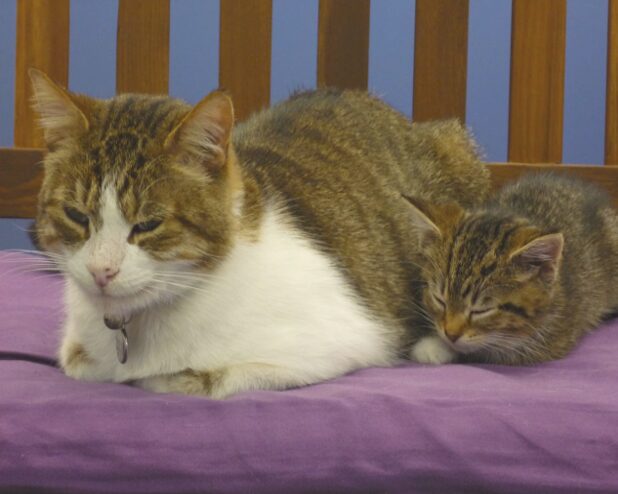
TIP: Is arthritis significant in old cats?
If you see your cat pausing before jumping down from a height or you notice that they are no longer using the scratching post, arthritis could be the cause.
When we know that they are uncomfortable because of arthritis there are many things that we can do to help: there is medication, nutritional support and alternative therapies. Another option is a course of injections that can have a dramatic effect on arthritis in cats and dogs. Your pet doesn’t have to be in discomfort and suffering we can help them if you let us.
YOUR NEXT STEP?
We offer special Senior Health & Happiness Assessments and testing.
This can be done when their vaccinations are due or at another time of the year. The following guidelines are for healthy cats with no apparent illnesses. For cats with one or more disease processes we actually create an individual plan for regular check-ups and special testing.
From 8 years old cats should get their urine concentration & “dip stick” test done once a year and blood tests at intervals.
From 10 years old (if not earlier) they should have a twice yearly check-up. At these check ups we will: assess your cat’s general health, weight and condition; examine the joints; check the blood pressure; perform a dental examination and discuss nutrition. We will also do a blood test once a year (more often if illness is detected).This gives a base line for comparison with future tests and can pick up issues early such as liver problems or over active thyroid.
From 15 years old we will also examine their retinas; examine the urine not only for concentration and “dipstick” tests but also examine the sediment.
AND we will discuss dementia & other behavioural issues in all senior pets.



